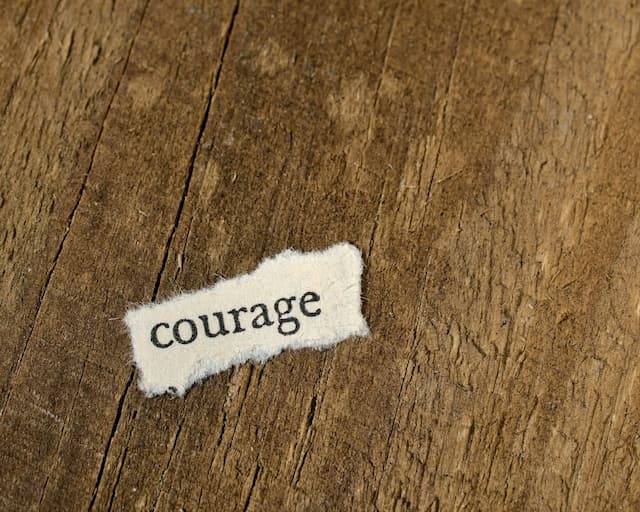How to forgive without getting an apology
Have you ever felt hurt or angry when someone did something wrong to you?
It is natural to feel that way.
However, did you know you can learn to forgive, even if the other person does not apologize?
Forgiveness is a powerful tool that can bring peace and happiness. This can be challenging, but it is an important skill to learn.
It helps us move forward and maintain healthy relationships.
Giving forgiveness is important to understand that forgiveness is not about forgetting or excusing what happened.
Instead, it is about finding a way to heal and free yourself from anger and resentment.
Forgiving does not mean what the person did was okay; it means you choose to let go and move forward.
Throughout this article, we will provide practical tips and techniques that anyone can use in forgiving someone without receiving an apology.
Acknowledge your feelings
Acknowledging your feelings helps you understand and accept your emotions.
It allows you to be honest with yourself about how you truly feel.
Besides, it is important because when you try to ignore or bury your emotions, they can build up inside you and make forgiving harder.
Acknowledging your feelings allows you to reflect on what happened and how it affected you.
That self-reflection can lead to insights about yourself and the situation, which can be valuable in forgiveness.
Express your emotions
Expressing your emotions helps you let go of the negative feelings inside you.
You may talk to someone you trust, like a friend or family member, about what happened and how it made you feel.
It is essential to share because keeping your feelings locked inside can make you feel even worse, allowing you to express yourself and get support.
Moreover, you may express your emotions by writing them down in a journal or diary. This helps you put your thoughts and feelings into words.
Focus on self-care
Focusing on self-care can make you do things that make you happy and help you feel good about yourself.
It allows you to show yourself love and kindness. You engage in activities that bring you joy, like playing with your friends, reading a book you love, or doing a hobby you enjoy.
Self-care also helps you build up your strength and resilience.
It makes you stronger, and it becomes easier to let go of the hurt and forgive.
Focusing on self-care reminds you that you deserve happiness and peace.
Give yourself time
Giving yourself time allows you to heal at your own pace and process your emotions.
Also, taking time means permitting yourself to feel all the emotions that come with the hurt.
It is like giving yourself a break to heal, just like when you have a physical injury that needs time to recover.
Sometimes, rushing forgiveness may not truly let go of our anger or hurt.
Through this, you can also find ways to care for yourself and do things that make you feel good.
Practice empathy
Empathy is the ability to understand and share the feelings of another person.
It can help you see the situation from the other person's perspective. You try to understand why they did what they did and how they might feel.
Also, it helps you realize that everyone makes mistakes or may have struggles and challenges.
Moreover, practicing empathy can help you feel compassion for the other person.
It enables you to care about their feelings. And it can make it easier to forgive them.
Furthermore, it can help you move on. Holding onto anger and resentment can damage your mental and physical health.
Practice mindfulness
Mindfulness helps you to focus on the present moment. This allows you to let go of negative emotions, such as anger and resentment, that may hold you back from forgiving someone.
It also lets you focus on your thoughts and emotions without getting overwhelmed.
In addition, practicing mindfulness helps you to understand the other person's perspective.
You can understand why they may have acted as they did, making forgiving them easier.
Mindfulness helps you to accept what has happened. This allows you to accept that the past is the past and that you cannot change what happened.
Moreover, it can help you let go of the need for revenge or punishment, making forgiving someone easier.
Seek support
Seeking support can provide a safe space for us to express our feelings.
You may talk to a trusted person, like a friend or a counselor, and we can share what we're going through and how we feel about it.
They can listen to us without judging, making us feel understood and not alone.
Moreover, it lets us gain different perspectives. Sometimes, talking to someone about the situation might have another way of looking at things.
Support can give us guidance and advice. This gives us ideas on how to cope with our emotions and find forgiveness within ourselves.
Lastly, support helps us know that we're not alone. This reminds us that many people go through similar challenges, and they have overcome them.
Set boundaries
Setting boundaries help you protect yourself from further hurt.
It means limiting your time with that person, avoiding specific topics of conversation, or refusing to do things that make you uncomfortable.
Another, it can help you start to heal from the hurt by giving you space to process your emotions and move on.
Setting boundaries is like drawing a line to protect your feelings and ensure you're treated well.
Forgiving is important because it does not mean you have to accept mistreatment.
Shift your perspective
Shifting your perspective means trying to find something positive or a lesson.
It does not mean forgetting what happened or saying it was okay. Instead, it helps you see things from a new angle.
If you shift your perspective, you open yourself to new thoughts and feelings. It helps you see that there might be more to the situation than just the hurtful action.
Aside from this, it can make you feel more in control and less stuck in your anger.
Letting go without an apology
Learning to forgive without receiving an apology is a valuable skill that can bring you peace and happiness.
Forgiveness is not about forgetting or saying what happened was okay. This is about finding a way to heal yourself and let go of anger and resentment.
Through acknowledging your feelings, expressing your emotions, and practicing empathy, you can take control of your feelings and start the forgiveness process.
Additionally, setting boundaries and focusing on self-care are important steps in protecting yourself and nurturing your well-being.
Moreover, shifting your perspective and looking for positive lessons under challenging situations can help you find meaning and grow from the experience.
Remember to give yourself time, as forgiveness is a journey that happens at your own pace.
Using these practical tips and techniques, you can free yourself from the burden of anger and find the strength to forgive, even without an apology.
Embracing forgiveness allows you to live a happier, more peaceful life and opens the door to healthier relationships and personal growth.
Thus, choose forgiveness and let go of the weight holding you back.













